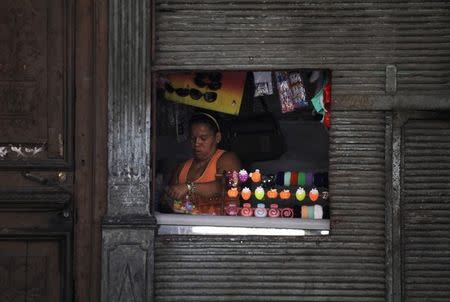Economy stalled, Cuba resists speedier path to free enterprise

By Daniel Trotta HAVANA (Reuters) - Cuban President Raul Castro told parliament on Saturday the communist country's market-oriented reforms must remain gradual, a clear signal he would resist calls to accelerate change in order to address an underperforming economy. He also praised Cubans for "defeating imperialism" by resisting U.S. aggression ever since the 1959 Cuban revolution. Since taking over for his ailing older brother Fidel in 2008, Raul Castro, 83, has enacted widespread reforms such as turning state enterprises into private cooperatives, freeing Cubans to work in small private businesses, and reducing the role of the state in everyday life. The reforms have raised expectations for improvements in the economy while also generating debate within the ruling Communist Party about how much more free enterprise should be allowed. Castro said the pace of reforms would remain deliberate. "The gradual nature of a series of activities that we are approving is indispensable," Castro told 548 members of the National Assembly in its one-day, semiannual meeting. The reforms have created a new class of wealthy Cubans, but a large majority still lives on $20 a month and overall Cuban productivity has stagnated. Low salaries remain a chronic complaint, even with free education, healthcare and a ration card good for a small amount of basic foodstuffs. Castro blamed the 52-year-old U.S. economic embargo of Cuba for much of the country's economic difficulty, saying the Cuban people deserved a medal for resisting U.S. hostility. "We have had success. We have had success in which our people have played a fundamental role. ... They have resisted and they are defeating imperialism," Castro said. The man charged with implementing the reforms, Marino Murillo, told the assembly more salary increases would be tied to productivity and that more state enterprises would be turned into private cooperatives in order to improve efficiency. For example in the food products and services sector, the government had authorized 498 cooperatives, of which 249 were functioning, said Murillo, a member of the elite Poltiburo. Cuba has also now authorized 467,000 people to work in the private sector, making them eligible to work in nearly 13,000 businesses, mostly restaurants, Murillo said. The assembly meets more to hear updates on the economy and government activities rather than to approve laws. Special sessions are sometimes called to pass major legislation, as with a foreign investment law approved in March. The Cuban economy grew just 0.6 percent in the first half, forcing the government to revise down its full-year projection to 1.4 percent from a target of 2.2 percent established in December, Economy Minister Adel Yzquierdo told the assembly. Yzquierdo attributed the downward revision, which had been previously reported, to industries such as tourism, sugar and nickel mining coming up short of projections. Other sectors outperformed expectations, Yzquierdo said. Transportation, warehousing and communications grew 6.2 percent while agriculture, livestock and fishing grew 5.6 percent. Sugar was up 5.3 percent, but well short of the target of 17.5 percent. (Reporting by Daniel Trotta; Editing by Lisa Shumaker)

